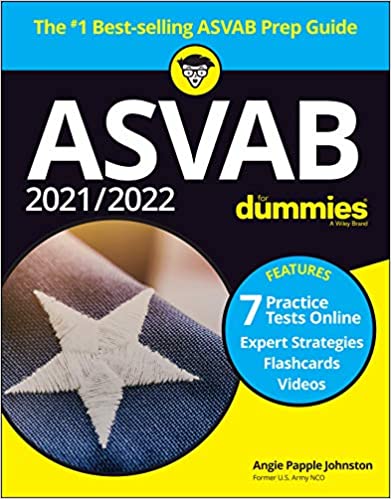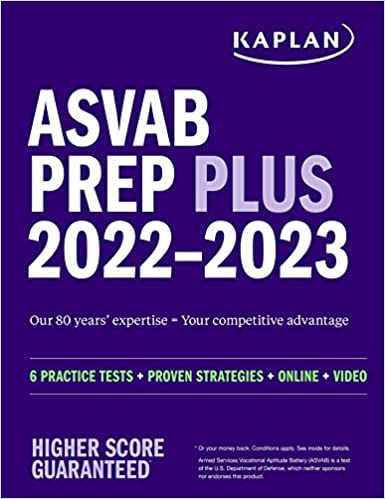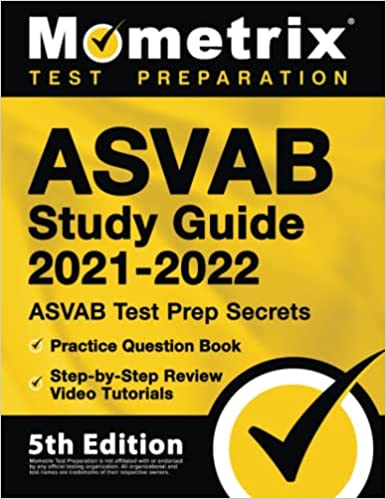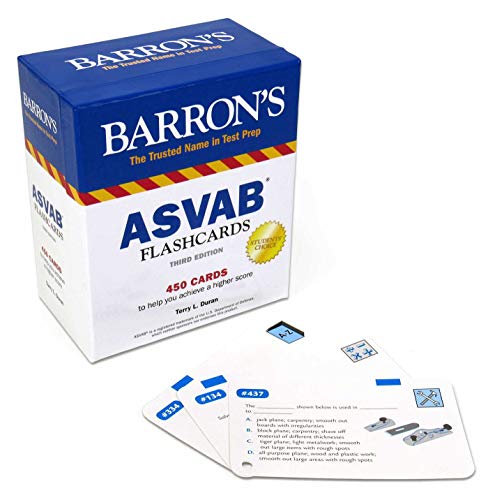
The General Science subtest of the Armed Services Vocational Aptitude Battery measures your knowledge of a variety of sciences, including: Earth science, biology, chemistry, health and more.
The General Science subtest is NOT part of your Armed Forces Qualification Test score. However, it used to help determine qualification for a number of different military jobs. On this subtest, you will 25 questions to answer in 11 minutes on the paper version of the ASVAB and you will have 16 questions to answer in 8 minutes on the CAT-ASVAB.
What is Covered by the Test
Here is a closer look at exactly what is covered on the General Science subtest of the ASVAB:
Ecology
You will need to have a good understanding of various organisms and how they interact with their environment, which is called ecology. You should familiarize yourself with ecological systems, ecological functions, weather patterns, migratory patterns and how organisms have altered and evolved over time.
Life Sciences
You’ll need to understand the human body, what it is made up of, how it works and how to keep it functioning properly. For these questions you will need to have a good understanding of human anatomy and the various systems within the body, including the circulatory system, the digestive system and so on.
Astronomy
On these questions you’ll need to know basic facts and figures about the universe, planets, the moon and sun and other celestial objects. You’ll also want to know how the Earth rotates around the Sun and other planetary movements.
Chemistry
On these questions, you’ll want to know the elements and how they create matter, how matter changes states and the other fundamentals of this science.
Geology
You’ll need to know about the Earth and what makes up this wondrous planet of ours, including: rock types, mineral formations, mountains, plains, canyons and more.
Other general science concepts you should be familiar with include:
- Metric measurements
- Temperature conversions
- Agriculture
- Botany (study of plants)
- Entomology (study of bugs)
- Genetics
- Zoology (study of animals)
- Archeology
- Genealogy
- And more
And that’s still not all, you’ll also want to be familiar with:
- Paleontology, including such terms as herbivores, carnivores and omnivores
- Meteorology and various weather patterns including tornados and hurricanes
- You’ll want to be familiar with the five kingdoms, which are:
- The Animal Kingdom – includes more than 1,000,000 species
- The Plant Kingdom – includes more than 250,000 species
- The Monerans Kingdom – includes bacteria and cyanobacteria and other one celled organisms that don’t have a nucleus. It has more than 10,000 species.
- The Protists Kingdom – includes one-celled organisms that do have a nucleus. It has more than 250,000 species.
- The Fungi Kingdom – includes common fungi like mushrooms and yeast. Fungi don’t photosynthesize light to create energy like plants. It has more than 100,000 species.
You’ll want to be familiar with the scientific classification system, which is a system for classifying all living things. The system includes:
- Kingdom
- Phylum or Division
- Class
- Order
- Family
- Genus
- Species
For example, the full classification for a lion would be:
Kingdom, Animalia (animals); Phylum, Chordata (vertebrate animals); Class, Mammalia (mammals); Order, Carnivora (meat eaters); Family, Felidae (all cats); Genus, Panthera (great cats); Species, leo (lions).
As you can see the General Science subtest covers a wide variety of science information. Most of this information was covered in high school though remembering it all may be difficult. You’ll probably want to review and “freshen up” your mind on these various topics before taking the General Science subtest.
Later on in this guide we’ll give you some tips on how to best prepare. You’ll also want to keep in mind that this section of the ASVAB does not count toward our AFQT score so if you are not going to be pursuing a job that requires a good General Science score then you will not want to spend too much of your study time on this subject. Now let’s look at some test taking tips.
Test Taking Tips
The General Science subtest is such a broad category chances are good that you will run into a few questions that you are not sure about.
If this happens to you, you may be able to eliminate some possible answers using common sense and then make an educated guess among those that are remaining. You also may be able to extract meaning from certain phrases used in the question and use that to guide your guess.
You do, however, want to make a guess. Guessing does not hurt your score so it’s in your advantage to answer each question whether you know the answer or not. Remember, guessing gives you a 25 percent chance of being correct while not guessing gives you a 100 percent chance for being wrong.
Preparing for the General Science Subtest
Again, this is such a broad category that preparing for this subtest can be difficult. Just deciding what to study can take a lot of thought and consideration.
One thing you should do is be sure to study the basics in the various subjects listed in this study guide. Skim through a good science textbook or find a good general science site online and browse around.
To get more direction in your study efforts, consider taking our General Science practice test which is filled with questions on areas that are commonly tested for on the ASVAB.
Our practice test can help give you direction on what areas to study on your own and can also give you a better idea of what areas you are already knowledgeable in and what areas you need to study more.
Our practice test is also a good way to familiarize yourself with the actual experience of taking the ASVAB. You’ll get used to the question format and other aspects of the test so that you feel much more confident and comfortable when you go sit for the real ASVAB.
Recommended ASVAB Study Guides
Using the right ASVAB study guide is essential to ensure the best possible outcome when preparing for the exam.




